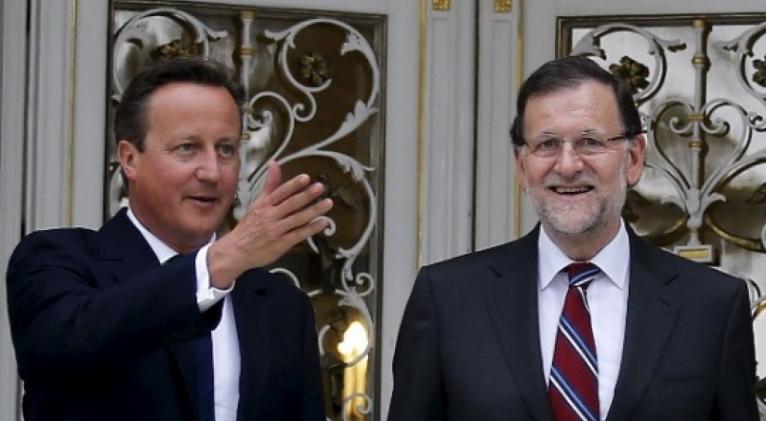Venezuela Rejects European Leaders' Intervention in Elections

In a statement released late Tuesday night, the Venezuela government rejected a letter written by President Mariano Rajoy of Spain, U.K. Prime Minister David Cameron, and the secretary-general of the European Council and others for “double standards” and “gross interference” in Venezuelan affairs.
The letter was published by El Pais in an article titled “Venezuela screams freedom.” It condescendingly describes the importance of justice, democracy, and freedom of expression, then notes that “Venezuela shouldn’t be an exception.” It calls to free those imprisoned for participating in violent blockades early last year, which saw 43 people killed and countless human rights violations as many couldn’t get to hospitals, schools, or work, as well as huge damage to public property.
In terms of the upcoming Venezuelan national assembly elections on Dec. 6, the European leaders claim that the electoral environment has been dominated by “violence, threats, and intimidation of the opposition.” The leaders do not explain what their sources are for such claims, nor how they can understand what is going on in Venezuela without being there. Their main evidence is Venezuela’s refusal to allow the U.S.-dominated OAS to observe the elections. Other regional organizations, such as CELAC, will be observing.
The letter concludes by calling on Venezuelan President Nicolas Maduro to respect the results of Sunday’s election, despite the fact that Maduro has promised to, and the opposition has not. Further, the Bolvarian government has respected all election results, including the 2007 referendum that it lost, while the opposition refused to accept the most recent presidential election results and many of its leaders were involved in the coup against democratically elected President Hugo Chavez in 2002.
“Those who endorsed this insolent missive are making a show of an international human rights framework that only serves the imperialist interests of Washington and doesn’t at all reflect the reality of Venezuela’s democratic (electoral) system and its deep devotion to participatory democracy … and international law,” the statement read.
The Venezuelan government pointed out the hypocrisy of such leaders making such remarks after they themselves “have been directly responsible for the humanitarian tragedy that devastates the Mediterranean, for the military invasions against innocent people in the Middle East and Africa, without mentioning the increasing denial of the human rights of their own peoples.”
Venezuela further criticized the letter for describing the violent actions by the opposition last year that left 43 Venezuelans dead and hundreds injured as “peaceful protests.”
“Venezuela is and will continue to be free, sovereign, and independent,” the statement concludes.
The European leaders are not the only ones to make statements about Venezuela’s upcoming elections. The U.S. State Department also responded to the murder last week of an opposition politician, quickly blaming the national government before an investigation had taken place. U.S. presidential hopeful Hillary Clinton on Monday called on hemispheric leaders to “raise their voices” on behalf of the Venezuela people this Sunday, accusing the Venezuelan government of “doing all it can to rig the elections.”
It is also not the first time that Rajoy has interferred in Venezuela’s affairs. In April this year Maduro accused him of “promoting destabilizing actions” in Venezuela, and in October last year Maduro revised his country’s relationship with Spain after Rajoy openly supported opposition leader Leopoldo Lopez.













Add new comment